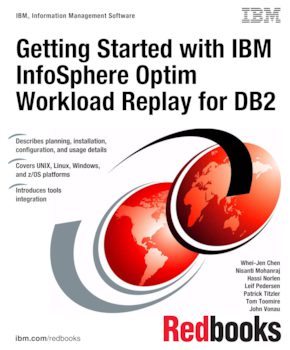Abstract
This IBM® Redbooks® publication will help you install, configure, and use IBM InfoSphere® Optim™ Workload Replay (InfoSphere Workload Replay), a web-based tool that lets you capture real production SQL workload data and then replay the workload data in a pre-production environment. With InfoSphere Workload Replay, you can set up and run realistic tests for enterprise database changes without the need to create a complex client and application infrastructure to mimic your production environment.
The publication goes through the steps to install and configure the InfoSphere Workload Replay appliance and related database components for IBM DB2® for Linux, UNIX, and Windows and for DB2 for IBM z/OS®. The capture, replay, and reporting process, including user ID and roles management, is described in detail to quickly get you up and running.
Ongoing operations, such as appliance health monitoring, starting and stopping the product, and backup and restore in your day-to-day management of the product, extensive troubleshooting information, and information about how to integrate InfoSphere Workload Replay with other InfoSphere products are covered in separate chapters.
Table of Contents
Chapter 1. Overview
Chapter 2. Deployment planning
Chapter 3. Installing and configuring IBM InfoSphere Optim Workload Replay appliances
Chapter 4. IBM InfoSphere Optim Workload Replay for DB2 for z/OS installation and configuration
Chapter 5. DB2 for Linux, UNIX, and Windows S-TAP installation and configuration
Chapter 6. Capturing and replaying workloads
Chapter 7. Ongoing operations
Chapter 8. Integration with other tools
Chapter 9. Troubleshooting
Appendix A. Worksheets and references
